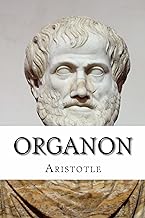
How to Read Aristotle's Books on Logic
How to Read Aristotle's Books on Logic
Estimated Reading Time: 10-12 minutes
Introduction
Aristotle, often hailed as the father of Western philosophy, made significant contributions across various disciplines, including metaphysics, ethics, and, notably, logic. Born in 384 BCE in Stagira, Greece, Aristotle studied under Plato and later became the tutor of Alexander the Great. His works laid the groundwork for much of modern scientific and philosophical thought. Among his many contributions, the "Organon" stands out as a foundational text in logic, offering a systematic approach to reasoning that has influenced countless thinkers throughout history.
Aristotle's perspective on logic is unique because it emphasizes the importance of syllogistic reasoning—an approach that analyzes the structure of arguments rather than merely their content. In a time when rhetoric often overshadowed logical reasoning, Aristotle's work provided a rigorous framework for evaluating arguments, making it a crucial text for anyone interested in philosophy, science, or critical thinking.
Why Aristotle's Perspective Matters
What makes Aristotle's approach to logic distinctive is his systematic method of inquiry, which he termed "syllogism." Unlike his predecessors, who often focused on rhetoric or dialectic, Aristotle sought to establish a formal structure for reasoning, allowing for clearer and more effective argumentation. His insights into the nature of propositions, the relationships between premises and conclusions, and the rules governing valid inference have become foundational to the study of logic.
Aristotle's logic differs from other thinkers, such as the Stoics or later philosophers like Kant, who approached logic through different lenses. While the Stoics emphasized propositional logic, Aristotle's syllogistic logic focuses on categorical propositions and their interrelationships. This distinction has had a lasting impact, shaping the development of logic as a discipline and influencing fields such as mathematics, computer science, and artificial intelligence.
Overview of Recommended Books
Organon
The "Organon," which translates to "instrument," is a collection of Aristotle's works that systematically outlines his theories of logic. It consists of six texts: "Categories," "On Interpretation," "Prior Analytics," "Posterior Analytics," "Topics," and "On Sophistical Refutations." Together, these texts provide a comprehensive framework for understanding logical reasoning.
Main Themes and Arguments:
- Categories: Introduces the concept of categories, which classifies entities and their properties, forming the basis for logical analysis.
- On Interpretation: Discusses the relationship between language and logic, focusing on how propositions can be true or false.
- Prior Analytics: Presents the theory of syllogism, detailing how conclusions can be drawn from premises.
- Posterior Analytics: Explores scientific knowledge and how it can be derived through logical reasoning.
- Topics: Offers strategies for constructing arguments and engaging in dialectical reasoning.
- On Sophistical Refutations: Identifies fallacies and errors in reasoning, providing tools for critical analysis.
Historical Context and Significance: The "Organon" emerged during a period of intellectual flourishing in ancient Greece, where philosophical inquiry was becoming more systematic. Aristotle's work was revolutionary in that it provided a structured approach to logic, contrasting sharply with the more ad hoc methods of his predecessors. The "Organon" not only influenced subsequent philosophers but also laid the groundwork for the development of formal logic in the Middle Ages and beyond.
Key Insights and Takeaways:
- Understanding Syllogism: Aristotle's syllogistic method allows readers to analyze arguments systematically, enhancing critical thinking skills.
- Categories of Being: The classification of entities helps in understanding the relationships between different concepts, which is crucial for logical reasoning.
- Distinguishing Validity from Truth: Aristotle emphasizes that an argument can be valid (correct in form) without necessarily being true, a distinction that remains vital in contemporary logic.
- Identifying Fallacies: By understanding common fallacies, readers can sharpen their analytical skills and avoid errors in reasoning.
Why Read This Book: The "Organon" is essential reading for anyone interested in logic because it provides the foundational principles that underpin much of Western thought. Students of philosophy, aspiring logicians, and anyone seeking to improve their reasoning skills will find value in Aristotle's insights. The work's approach is not only historical but also practical, offering timeless strategies for effective argumentation.
Key Themes and Sections
The "Organon" addresses logic through various interrelated themes, each building upon the last to create a comprehensive understanding of reasoning:
- Foundational Concepts: The "Categories" and "On Interpretation" introduce key concepts that underpin logical discourse, such as the nature of terms and propositions.
- Syllogistic Structure: "Prior Analytics" delves into the mechanics of syllogisms, teaching readers how to construct valid arguments and draw conclusions.
- Scientific Reasoning: In "Posterior Analytics," Aristotle connects logic to scientific inquiry, emphasizing the importance of empirical evidence in validating knowledge.
- Dialectical Techniques: "Topics" provides practical strategies for engaging in discussions and debates, highlighting the importance of rhetoric in logical reasoning.
- Critical Analysis: "On Sophistical Refutations" equips readers with the tools to identify and counteract fallacies, fostering a more rigorous approach to argumentation.
This progression of ideas allows readers to grasp the complexities of logic, ultimately leading to a well-rounded understanding of the subject.
Who Would Benefit from Reading These Books
The "Organon" is suited for a diverse audience:
- Students and Academics: Those studying philosophy, logic, or related fields will find Aristotle's insights invaluable for their academic pursuits.
- General Readers Interested in Logic: Anyone curious about reasoning, argumentation, or critical thinking will benefit from the structured approach presented in the "Organon."
- Professionals Seeking Practical Wisdom: Individuals in fields such as law, education, or communication can apply Aristotle's principles to enhance their persuasive skills and analytical abilities.
- Anyone Looking for Personal Growth: The logical frameworks provided in the "Organon" can aid in personal decision-making and problem-solving, fostering intellectual development.
Recommended Reading Order
To maximize your understanding of the "Organon," consider the following strategic approach:
- Begin with: Categories - This section lays the groundwork for understanding the nature of entities and their classifications, essential for grasping subsequent texts.
- Focus on: Prior Analytics - Here, you will learn about syllogistic reasoning, which is central to Aristotle's logical framework.
- Explore: On Interpretation - Understanding how language interacts with logic will deepen your comprehension of logical structures.
- Delve into: Posterior Analytics - This section connects logic with scientific inquiry, enriching your understanding of empirical reasoning.
- Engage with: Topics - This practical guide will help you apply logical principles in real-world discussions and debates.
- Conclude with: On Sophistical Refutations - This final text will sharpen your critical thinking skills by teaching you to identify and counteract logical fallacies.
Tips for Getting the Most Out of This Foundational Work:
- Take notes as you read to capture key concepts and insights.
- Engage with the material by discussing it with others or applying it to current debates.
- Reflect on how Aristotle's principles can be applied in contemporary contexts, enhancing their relevance.
Conclusion
Aristotle's contributions to logic, encapsulated in the "Organon," are foundational to our understanding of reasoning and argumentation. His systematic approach not only provides tools for critical thinking but also encourages a deeper exploration of knowledge and truth. As you embark on your journey through Aristotle's works, remember that the principles of logic he established remain relevant today, offering timeless wisdom for navigating the complexities of thought and discourse.
Explore the "Organon," engage with its ideas, and allow Aristotle's insights to enhance your reasoning skills and intellectual growth. Whether you're a student, a professional, or simply a curious reader, the lessons from this ancient text continue to resonate, urging us to think more clearly and argue more effectively.
Featured Books

Organon
by Aristotle
Published: 350 BC
The Organon is another name for the standard collection of Aristotle's six works on logic. They still belong to the most significant works on this subject and were highly influential throughout history for many philosophical tendencies, especially the Scholastics. This is the complete edition with all six works. Contents: Categories On Interpretation Prior Analytics Posterior Analytics Topics Sophistical Refutations